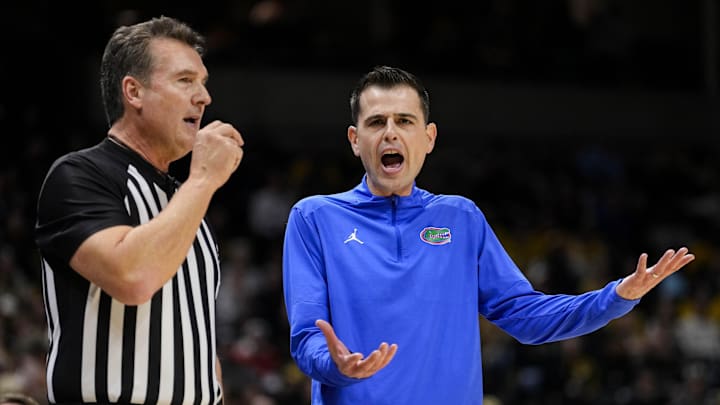The SEC is coming off a record-breaking season, sending an unprecedented 14 teams to the NCAA Tournament(the only two teams who didn't make it are LSU and South Carolina). But for all the praise the conference has earned, there's one lingering question hanging over its head like a cloud of doubt: Will SEC officiating prove to be the Achilles’ heel of its tournament success?
ESPN’s Jay Williams certainly thinks it could be. The former Duke star didn’t hold back when he suggested that the SEC’s officiating style might be a major problem come tournament time, where games are called differently, and physicality isn’t always embraced. And Williams isn’t alone in this concern.
Jay Williams’ Concerns About SEC Officiating
Williams pointed out what many SEC fans and analysts have grumbled about all season: The conference’s referees seem to let a lot of physical play go uncalled.
Whether it's players getting mugged on drives, defenders holding offensive players trying to make cuts, or fierce rim play that looks like it belongs more in a wrestling ring than a basketball court, the SEC’s brand of basketball is rough and rugged.
But as Williams sees it, that hard-nosed style might not translate well to the NCAA Tournament, where referees from other conferences aren’t as lenient. When calls that were previously ignored suddenly result in a whistle and free throws, frustration can build fast.
The SEC Responds – Garth Glissman’s Take
Garth Glissman, an SEC executive, was quick to fire back at Williams’ comments, armed with stats to defend the conference’s officiating. According to Glissman:
- More fouls were called in SEC conference games (36.9 per game) and free throws attempted (43.7) than any other power conference this season.
- Those numbers actually increased during the first 10 games of the SEC Tournament, with fouls rising to 39.4 per game and free throws attempted climbing to 48.1 per game.
Glissman’s response suggests the SEC is calling plenty of fouls and allowing opportunities for players to score from the line. But is that really the whole story?
The Problem Isn’t Necessarily the Whistles — It’s the Consistency
It’s not that the SEC refs don’t blow their whistles; they clearly do. The issue is what they choose to call and what they let slide.
When referees allow heavy contact in the paint, excessive hand-checking on the perimeter, and defenders grabbing at cutters off the ball, it builds a style of play that can be difficult to shake once tournament time rolls around.
Now, SEC teams are faced with the challenge of quickly adjusting their style to fit the way other officials from various conferences will call games. The question is, can they adapt before it’s too late?
Kentucky and the Rest of the SEC on High Alert
For Kentucky and the rest of the SEC’s impressive field of tournament teams, this means one thing: Adjustment is key.
Players who are used to grinding out physical wins will have to adapt to a cleaner game. Coaches will have to prepare their teams to defend without excessive contact and to avoid unnecessary fouls that could easily pile up.
And while Kentucky is talented enough to make a deep run, their physical style could be a double-edged sword if they don’t adjust quickly.
Will SEC Teams Go From “Best Ever” to One-and-Done?
As incredible as the SEC’s regular season was, all that success could unravel if teams aren’t prepared to change their approach. The conference’s physicality helped them win games in the SEC Tournament, but the NCAA Tournament is a different animal entirely.
From officiating inconsistencies to potential foul trouble for key players, the stakes have never been higher for the SEC. And while Jay Williams’ criticism may have ruffled some feathers, it’s a legitimate concern worth considering.
Already hate Doug Shows 85 seconds into the game. 😭 pic.twitter.com/t6Kb2rZTQH
— Casey (@BleedBlueCasey) March 15, 2025
The Bottom Line
Kentucky fans have every reason to feel confident about their team’s chances this March. But they also have every reason to worry about whether the SEC’s bruising style of play will backfire under the brighter, less forgiving lights of the NCAA Tournament.
